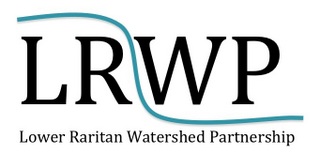Welcome LRWP Business Manager Jeffrey Key!
In March the LRWP brought on Jeff Key as a part time business manager. We are so pleased to have him on board! Jeff has an extensive background in law and leadership. A former Americorps Teaching Fellow, Assistant Professor at Seton Hall Law, and now Founder/Principal Consultant with NFinityEnterprises, Jeff’s focus is on supporting New Jersey based nonprofits in their aims to provide equitable access to services and programming. Jeff currently serves on the board of the Center for NonProfits and the National Board of the Young Nonprofit Professionals Network. Spring 2024 Intern Maxim Pavon sat down with Jeff to learn more about him and his work, we share the interview below.

Welcome Jeff! We are happy to have you on board with the LRWP, and would love for our community to get to know a little more about you and your work:
- What’s your favorite outdoor spot in the Lower Raritan?
- I enjoy spending time at Boyd Park, which was built when I was growing up in the area and has been expanded over the years. I’m always a big fan and advocate of maintaining and creating green spaces in cities as gathering spaces, a way to have sustainable development, and important spaces for residents to have accessible space for outdoor activities and recreation. The Delaware and Raritan Canal State Park is a close second spot with amazing trails to explore and I’ve been excited to see the expansion of projects like the East Coast Greenway to connect different trail systems through multiple states.
- With an extensive background in law and leadership, what has interested you so much in the realm of virtual communications as to found Nfinity Enterprises, a web design and technology consulting firm devoted to the success of small businesses and nonprofits?
- I started working with nonprofits immediately after graduating law school at a time when social media and website presence was a growing trend, and some of my responsibilities that developed over time involved working in these areas. Meeting so many people working at amazing nonprofits let me know that they were making an amazing impact that was being overlooked in some cases, and with up to date websites and systems to show impact and tell their story they could connect with more donors and volunteers to get the support they deserve. Technology is advancing so rapidly that I think it’s crucial that nonprofits working on some of the most important social challenges have access to these tools for positive impact and also have a voice in advocating how these advances affect the communities they work in.
- What is the most common struggle you see among small and mid-size nonprofit organizations?
- With small and mid-size nonprofit organizations, there is a challenge around scaling programming for growth and effectively using staff capacity. I definitely see technology playing a role in helping with that, since one of the most valuable resources for nonprofits is staff time and capacity and efficient systems, automation, and time-saving processes free up staff members to focus more on critical day-to-day work and strategic planning.
How do you see your work assisting the LRWP to address such hurdles?
- I see my work with LRWP helping to build out systems and processes to make it easier for folks at every level to engage with the organization or complete their work: volunteers, staff, and donors/supporters. A second area that I hope to assist LRWP is thinking about how to build systems that will work for current programming and operations, but also be ready to scale to meet needs as the organization grows and adds additional staff, programming, and events.
- How have your connections to grassroots coalitions such as Young Nonprofit Professionals Network, and NJ Center for Nonprofits played a role in your professional and personal journey?
- I think my connections have put me in contact with an amazing network of professionals working at nonprofits that are very different from the organizations that I’ve had personal experience working at. That opportunity to share with and learn from ideas and approaches that have been successful at other organizations has been amazing, and is one of the things that I appreciate about working in the nonprofit sector. It did take me some time to recognize the importance of networking on a wider scale outside of the immediate area where you work, so I try to encourage students, interns, and younger nonprofit professionals to do that as soon as possible in their careers.
- Finally, what is one mantra that you live by?
- One mantra that I live by is that all failure is an opportunity to learn, grow, and engage in self-reflection. As someone who definitely tends to be a perfectionist, this is something that I’ve had to learn as I’ve progressed in my career and be intentional about remembering. With many of the skills and abilities that I now consider myself to be good at, there was definitely an initial learning curve and instances where something I tried or was in charge of did not meet expectations. Anyone who ends up being really good at anything or considered an amazing expert absolutely made mistakes along the way and didn’t let those setbacks stop them from continuing to work and improve their craft.
